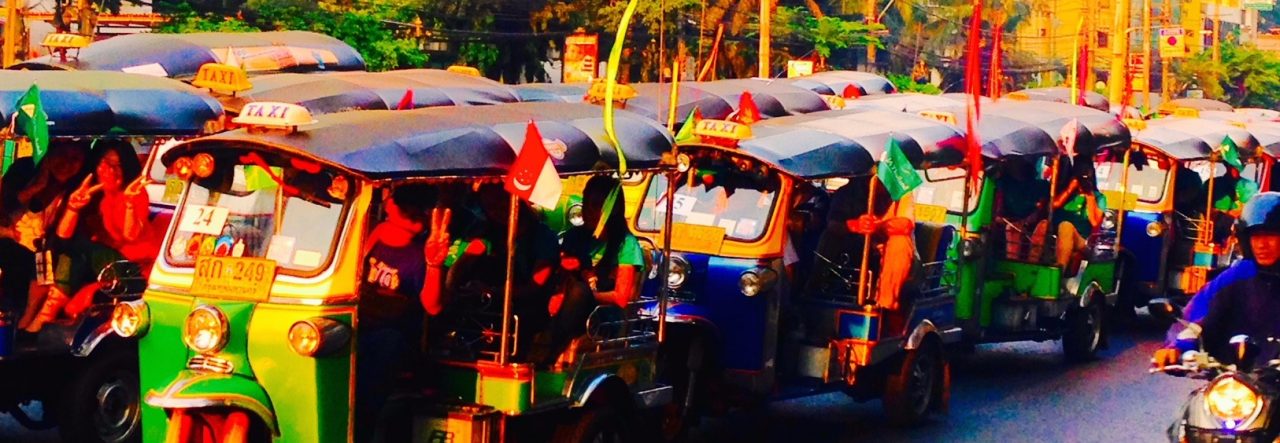By Dulce Natividade Fátima da Cunha and Rebecca Devitt
Magdalena Soares, a Timor Leste woman with a disability, knows how to be resourceful. Self-taught to read and write, she has never been to school. Yet Magdalena is determined to be the best version of herself.
In Magdalena’s words, ‘people stare at me often because of my physical impairment, but my disability does not stop me from living independently and successfully’.
Through her involvement with Timor-Leste’s national Disabled People’s Organisation (DPO), Ra’es Hadomi Timor Oan (RHTO)[1], supported by the Australian Government’s Partnership for Human Development (PHD), Magdalena has built her skills, technical knowledge and confidence and is now employed as an Administration Officer for RHTO. She is also the founder of the first DPO for women with disabilities in Timor-Leste.

Women and girls with disabilities are amongst the most marginalised in society. Globally, they are three times more likely to be illiterate and twice as likely to be unemployed[2]. Women with disabilities experience violence at more than double the rate of other women and are severely underrepresented in political decision-making and leadership roles[3]. Without opportunities to earn an income, women with disabilities are denied financial independence and the sense of purpose and dignity that a job provides, as well as less able to influence decisions that affect them.

Over the past decade, recognition of the negative impacts of rising inequalities on sustainable economic growth has led to calls for more inclusive growth defined as ‘economic growth that is distributed fairly across society and creates opportunities for all’[4]. This focus has only been heightened by the unequal economic impacts of the COVID-19 pandemic, spurring action by governments and development actors. For Abt Associates, we are both creating opportunities that mitigate barriers experienced by marginalised groups and adopting inclusive processes to achieve these outcomes.
PHD[5] helps women with disabilities overcome barriers to economic opportunities through its long-term support for DPOs in Timor-Leste. This has included capacity building and mentoring support for women with disabilities in areas such as public speaking and sector specific technical knowledge backed up with real employment opportunities through the mandating of fifty per cent of the RHTO’s field officer positions across thirteen municipalities to be held by women with disabilities. For many of those employed, this was their first ever paid job and several have since used the experience progress further in their careers.

Critical to PHD’s success has been adopting a strength-based approach to empower women with disabilities to engage in economic activities. Drawing on lived experience in overcoming barriers, these women have become role models and have been able to use their experiences for effective advocacy on disability issues locally and nationally.
PHD’s support for DPOs over the long-term has also enabled DPO advocacy for more inclusive and accountable government policies and regulations to better support inclusive growth. This has included the establishment of the National Directorate for Promotion and Protection of the Rights for People with Disability to oversee programs for people with disabilities; and the development of the National Disability Action Plan to guide Ministries’ annual planning and budgeting to deliver more inclusive services.
Valuing and empowering women with disabilities, as contributors to the economy and society, is one small step towards creating more inclusive growth. If we are to better serve the estimated 300 million women with disabilities globally, we need to scale up these approaches and accelerate progress.
About the authors: Dulce Natividade Fátima da Cunha (Uche Quy) was the former Disability Program Adviser for the Partnership for Human Development, Timor-Leste, and Dr Rebecca Devitt is Technical Adviser, Gender Equality, Disability and Social Inclusion, with Abt Associates, Australia.
[1] RHTO is a national DPO established in 2010 to represent the voices of people with disabilities, provide a safe space and learning opportunities for all, including women and girls with disabilities.
[2] Compared to men without disabilities: UN Women, Facts and Figures: Women and girls with disabilities.
[3] Ibid
[4] OECD, https://www.oecd.org/inclusive-growth/#introduction
[5] The program aims to increase human development outcomes in health, nutrition and literacy working across health, education and social protection sectors with gender equality and disability inclusion cross-cutting. PHD is in its second five-year phase with funding of up to AUD120 million from the Australian Department of Foreign Affairs and Trade and is being delivered by Abt Associates. More information on PHD can be found here.
